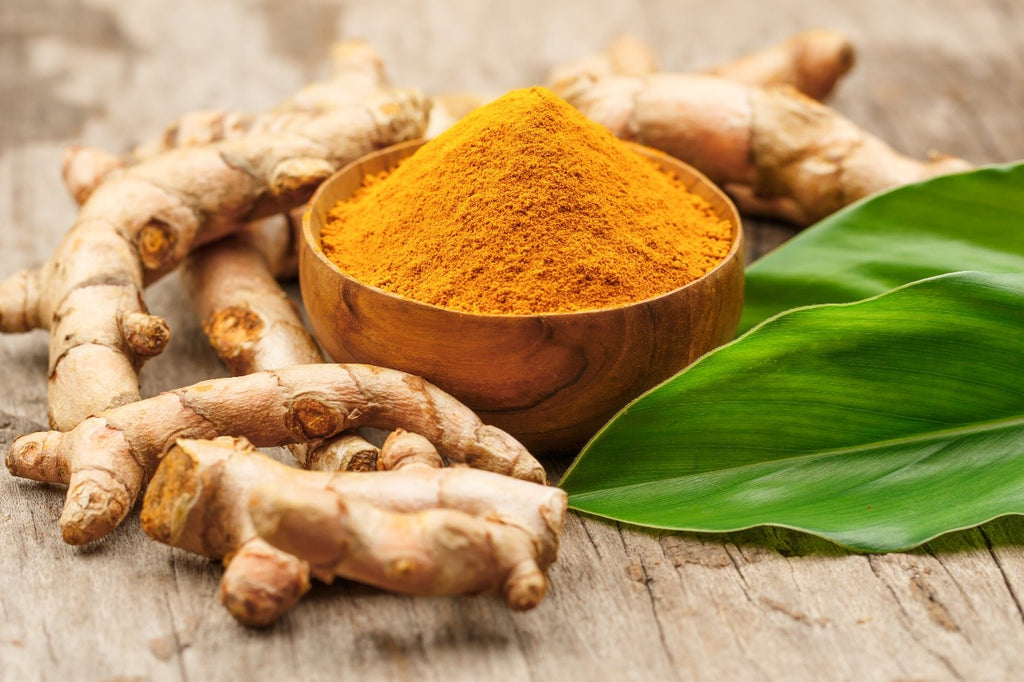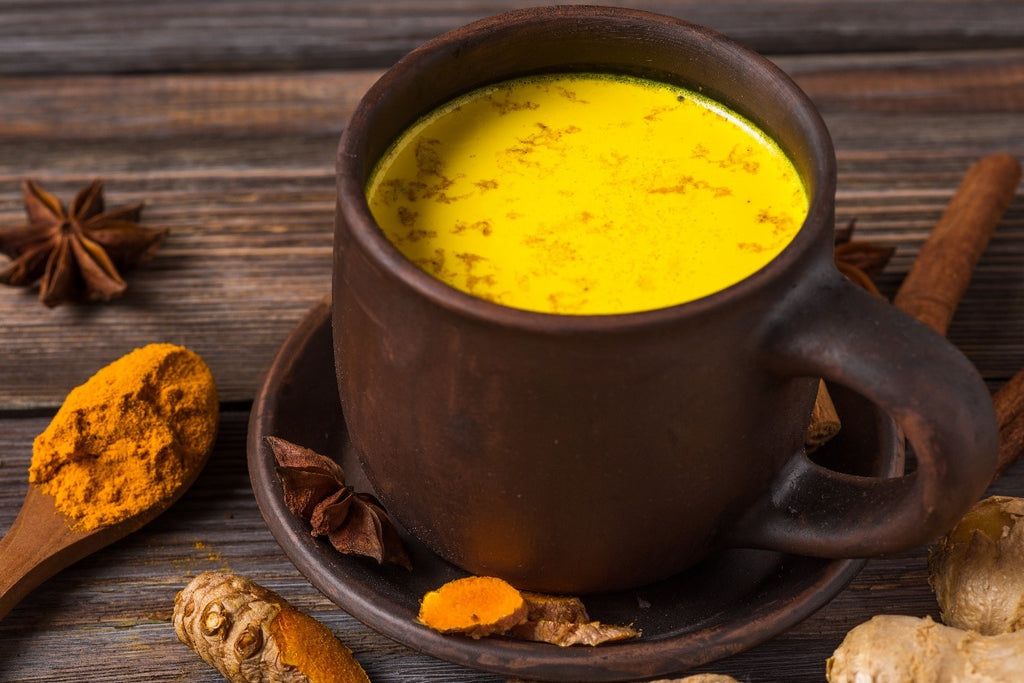Pain is the sensation that differentiates between the living and the dead. It needs to be felt. Well, pain is, at times, considered a virtue in the philosophical world. However, in the real world, it’s a problem no one wants to get.
Physical and emotional pain bring about different types of consequences. Dealing with emotional pain is an uphill task. However, you can get rid of physical pain by turning to mother nature.

Physical pain can be acute or chronic. Acute pain results from injury, trauma, falls, etc., and lasts only until the body heals itself up. However, chronic pain is associated with some underlying infirmity that keeps adding discomfort over long periods. One such persistent, gnawing ache is back pain, for which we have plenty of natural herbs to cure. But Is it OK to use turmeric for back pain?
Back Pain
Your back is divided into two parts, i.e., upper back and lower back. Most of the time, the pain occurring in this region is excruciating and can cause serious debilitation. It is the most common reason for missed work (264 million lost workdays) globally.
It has been reported that there has been a sharp increase in the debilitation caused by low back pain, and almost 80% of all individuals will experience back pain at some point in their life.
Therefore, it is necessary to keep a check on your back and to prevent it from falling into the abyss of backache.
Types Of Back Pain
Back pain is a generalized term. There are different types of back pain based on their origin:
1. Muscle Strain
Poor posture can lead to muscle strain in your back. The back muscles are pretty strong ones. However, a persistently poor posture or misuse of the back can lead to sprains and strains. Studies on industrial workers have found a link between wrong working posture and low back pain.
2. Injury/Trauma
Injury to the lower extremities can lead to the development of low back pain. Athletes are more prone to backache because of the lower limb and extremity injuries they face.
3. Nerve Issues
Sciatica
Sciatica refers to the inflammation of the sciatic nerve. The sciatic nerve is a large nerve that innervates a large portion of your back and the legs. The long coursed nerve can get inflamed due to multiple reasons:
Compression
Impingement or compression of the nerve can cause pain in the buttocks, thighs, legs, and even the foot region. Muscular imbalance due to improper posture is a leading cause. Wallet neuritis is another condition that arises from the habit of carrying a wallet in the back pocket.
Disc Herniation
A herniated disc can cause serious nervous compression and may even lead to spinal cord dysfunction. In such cases, patients may also experience burning and tingling sensations in addition to pain, a study suggests. It is identifiedas a causative factor for sciatica.
Spinal Stenosis
Spinal stenosis is a condition in which the spinal canal gets narrowed down, leading to excessive pressure on the nerves. As per a study, spinal stenosis is linked to low back pain and radicular leg pain.
4. Degenerative Problems
Osteoporosis
Osteoporosis is a disease in which there is demineralization of the bones. This loss of minerals can give rise to back pain.
Arthritis
Osteoarthritis and rheumatoid arthritis may also stick you to the bed. Back pain is also seen with these degenerative issues.
Spondylitis
Spondylitis is characterized by inflammation of the vertebrae (spinal bones). This may lead to the fusion of these bones, i.e., ankylosing spondylitis. It is a degenerative process that usually occurs with increasing age.
Degenerative Disc Disease
This is part of the aging process where the vertebral discs degenerate and start pinching the nerves leading to back pain (upper and low back pain).
Turmeric: The Back Pain Killer

Also known as Curcuma longa, turmeric is a wonderful herb. The herb is gravely revered in Indian medicine and Traditional Chinese medicine (TCM) alike. This is because this yellow delight packs such potent therapeutic agents that taking eyes off is impossible.
Most of us familiar with its role in cold and flu. In Indian households, turmeric mixed in milk is considered the first defense against seasonal cough and flu. Some orthodox people still use turmeric paste as an analgesic cream. But do you know turmeric is a superb supplement to flush out back pain from your body?
How Does Turmeric Work?
Turmeric has abundant amounts of the chemical Curcuma. This Curcuma is capable of casting away all sorts of pains and aches from your body.
Curcumin: The Magical Analgesic
Curcumin from turmeric has a broad range of action. It targets enzymes, growth factors, and other molecules inside the body. The molecule is capable of bringing about pain relief by inhibiting the pain signaling pathways.
The Lipoxygenase enzyme is responsible for the release of inflammatory cells (cytokines, etc.). Studies suggest that curcumin binds to the phosphatidylcholine micelles or directly to the lipoxygenase enzyme, leading to action inhibition. Thus, a reduction in inflammatory cells (TNF, Interleukins, etc.) provides pain relief.
Impact Of Turmeric On Different Types Of Back Pain
1. Arthritis Pain
Osteoarthritis is identified as a factor leading to back pain. People suffering from osteoarthritis face the problem of back pain, a study suggests.
Anything that relieves the symptoms can be considered potent. According to a study, Curcuma longa can relieve osteoarthritis pain. Along with curcumin, turmeric also has bioactive components such as tumerosaccharides that relieve pain. Another randomized controlled trial showed that Curcuma extract from turmeric effectively reduced osteoarthritic knee pain.
The curcumin from turmeric has an analgesic effect similar to NSAIDs such as paracetamol, a study suggests.
According to a pilot study, turmeric has remarkable anti-arthritic effects in rheumatoid arthritis patients too. Supplementation with turmeric was safe and efficacious too. The pain-killing effects of Curcuma extract were found to be superior to diclofenac sodium.
2. Muscle Sprain
Athletes who have to give up their exercise training due to back muscle pulls and strains should benefit from turmeric supplementation. According to a study, overuse of back muscles (such as weight-lifting and heavy training exercises) can lead to muscle damage and back pain. Turmeric extracts are immensely potent in reducing pain, inflammation and also increase muscle strength.
Another study found that turmeric has fast pain-relieving effects in acute muscular pain. The results were comparable to acetaminophen. The yellow is efficacious in relieving bursitis pain too. In addition to inhibition of lipoxygenase enzyme, it is believed that it also reduces the release of pro-inflammatory cytokines in other ways.
3. Injury Pain
Acute nervous pain arising from an injury is an unbearable situation. The condition is worse if the damage to the nerves is long-lasting. If you have suffered a neurological injury, you should immediately start turmeric supplementation. A study suggests that early-stage peripheral neuropathy can be stopped from converting into chronic neuropathic pain using turmeric. The participants of this study suffered from sciatic nerve pain as a result of chronic constriction injury.
4. Sciatica
Turmeric is considered a potent supplement when it comes to managing sciatic nerve pain. According to studies, when paired with black pepper, turmeric has a superb analgesic effect on sciatica. A reduction in disability was seen in sciatica patients taking turmeric supplements.
According to another study, turmeric has exceptional antioxidant properties too. This helps you get relief from sciatic nerve pain. As per a review, turmeric supplementation worked best when paired with acupuncture therapy. Evident pain reduction was seen in low back pain patients taking turmeric supplements.
A 2020 study carried out on rats found that turmeric caused a significant reduction in neuropathic pain. The inhibition of lipid peroxidation also reduced inflammation.
5. Disc Slip
A slipped disc results in excess pressure on nerves. Lumbar radiculopathy (disease of the nerve roots) is a common finding after disc herniation or slippage. It is interesting to know that turmeric is considered a non-surgical treatment modality for treating lumbar radiculopathy.
It is believed that curcumin alleviates pain by reducing neuroinflammation. It also cuts down the oxidative stress and the nociceptive factors responsible for neuropathic pain. TNF-α was found to be responsible for neuroinflammation. Turmeric reduces the expression of Interleukin-6 and TNF-α.
Curcumin also protects the nerves TNF-α-induced release/production of reactive oxygen species. The increased oxidative stress leads to neuronal cell death. According to a study, curcumin effectively alleviates neuropathic pain in diabetic rats.
According to another study, turmeric alleviated pain by hyperalgesia in disc herniation cases and enhanced nervous repair and healing.
6. Degenerative Disc Disease
The powerful polyphenol, i.e., curcumin in turmeric, possesses potent anti-inflammatory properties. These properties help in relieving symptoms of degenerative disc disease. An article published in the Natural Medicine Journal discusses how good turmeric manages arthritic conditions and degenerative disc disease.
Where Can I Find The Best Supplement?
If you want your low back pain to go away instantly, then get yourself the Organic Turmeric Curcumin with Black Pepper by clicking here. The product at Beherbal.com is a completely organic product designed to keep you healthy and away from pain.
It contains 10mg of BioPerine that increases the bioavailability of the curcuminoids by manifolds.
Additional Benefits Of Turmeric

It is not just the back pain that will go away; rather, you shall get a beneficial pack for multiple maladies:
Antioxidant Boost
Turmeric keeps you young, fresh, and active, thanks to the super antioxidant potential. The yellow spice reduces oxidative stress while increasing the body’s capacity to fight free radicals.
Improved Brain Function
With vast amounts of curcumin in the turmeric extract, you will see marked improvements in brain function. It also helps keep degenerative brain disorders (Alzheimer’s, Parkinson’s, etc.) at bay.
Improved Heart Health
It has been reported that people using turmeric (curcumin) have an overall lower risk of experiencing a heart attack. Therefore, you must add some turmeric supplements to your diet to keep heart issues away.
It even helps revert the heart damage done by cardiovascular diseases, a study suggests. The yellow herbal supplement has the capability of preventing atrial and ventricular cardiac arrhythmias too.
Prevents Cancer Development
Curcumin from turmeric has anti-cancer properties. According to a study, curcumin inhibits the process of new blood vessel formation (angiogenesis) by cancer. It also effectively limits the spread of cancer (metastasis).
As per another study, a reduction in the risk of cancer was seen with turmeric consumption.
In a 2018 review, it was found that turmeric usage leads to a decrease in markers of lymphoma and leukemia (cancers). The use of ginger and turmeric extract was shown to help manage breast cancer too.
Remedies For Back Pain
In addition to the supplementation, you can try these home remedies to alleviate low back pain.
Herbal Supplements
According to a study, herbal supplements significantly reduce back and joint pain. They also improve the range of motion. In addition to turmeric, you can utilize other herbs for your benefit as well. This includes willow bark, kava kava, and ashwagandha.
As per studies, ashwagandha use effectively reduces low back pain in patients.
Hot/Cold Therapy
Alternating hot and cold (ice packs) have proven to be pain-relieving in many cases. You can try heat application if the back pain is arsing due to a muscle spasm, whereas sciatic nerve pain responds better to cold for some.
Massage Therapy
Massage therapy is effective in relieving the pressure of the muscles. It reduces back pain, decreases soreness, and improves range of motion.
Yoga
Yoga can help improve the strength of the lower back muscles. Therefore, it can help the body become resistant to aches and pains.
Conclusion
Turmeric is a yellow-colored herb that is known for its potent analgesic, anti-inflammatory, and antioxidant properties. Ayurvedic medicine and Traditional Chinese Medicine have identified it as an effective supplement for managing chronic pain.
Low back pain is a menace that can cause severe debilitation. Be it neuropathic sciatic nerve pain, degenerative disease pain, or a muscular spasm; back pain can be an obstacle in your day-to-day activities. Thankfully, curcumin from turmeric has shown promising results in managing muscular pain, sciatic nerve pain, and even arthritic conditions.
Back pain arising from disc herniation can also be managed well with this wonderful herb.






